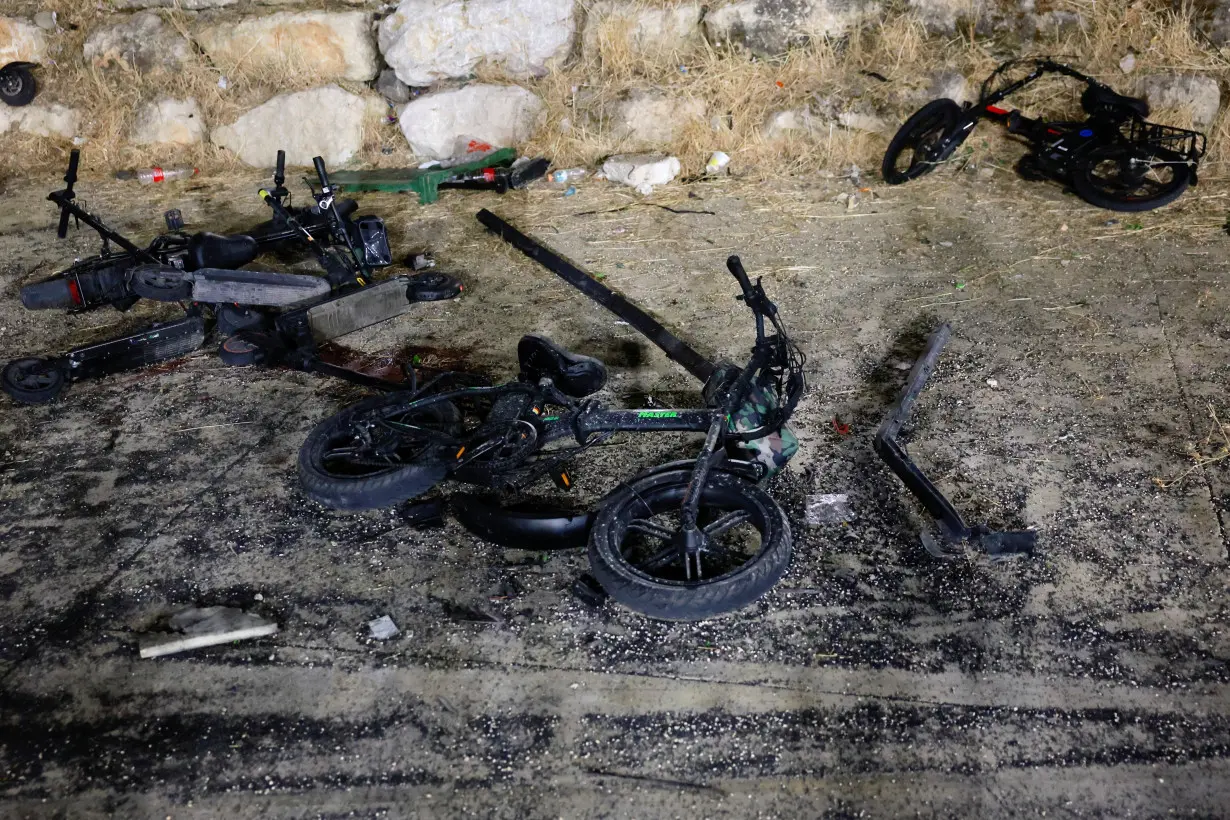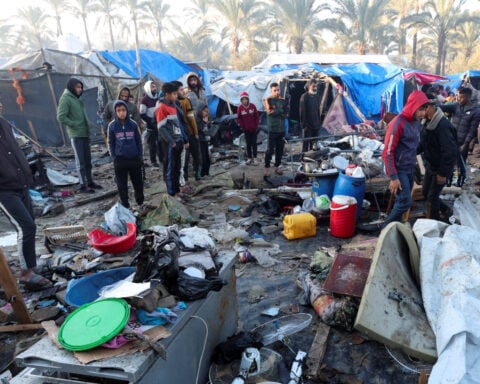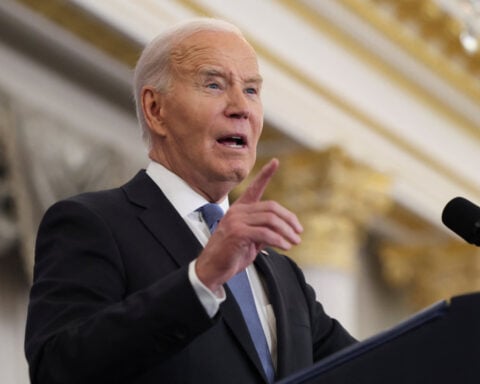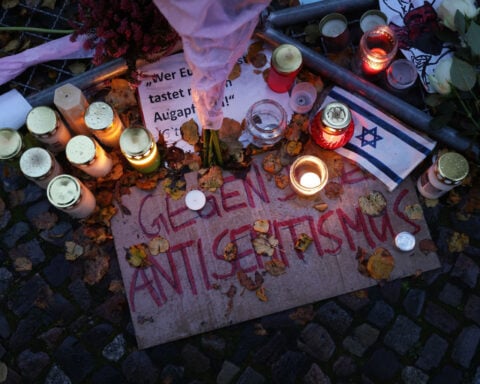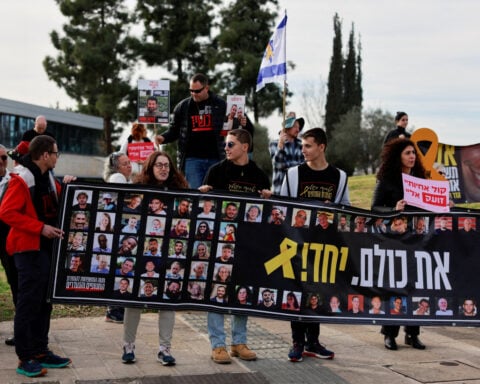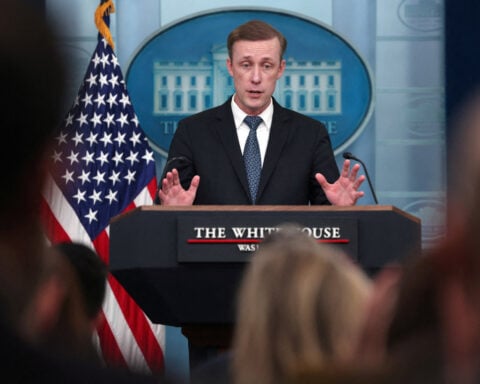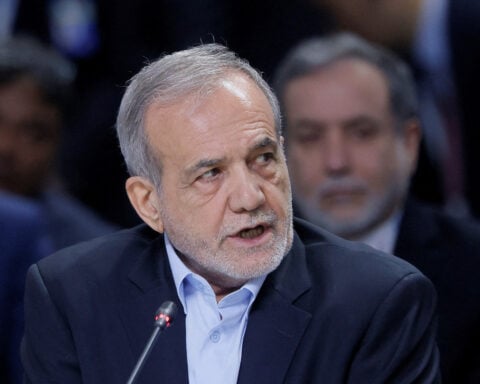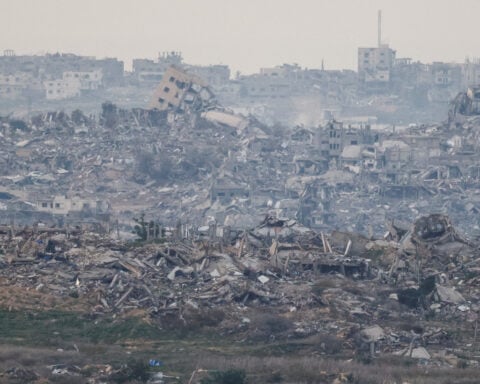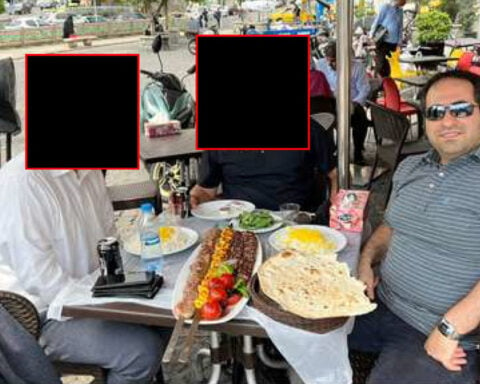By Maayan Lubell, Maya Gebeily and Laila Bassam
JERUSALEM/BEIRUT (Reuters) -A rocket attack on a football ground in the Israeli-occupied Golan Heights killed 12 people including children on Saturday, Israeli authorities said, blaming Hezbollah and vowing to inflict a heavy price on the Iran-backed Lebanese group.
Hezbollah denied any responsibility for the strike, the deadliest in Israel or Israeli-annexed territory since the start of the conflict in Gaza.
The attack sharply escalated tensions in the hostilities which have been fought in parallel to the Gaza war and has raised fears of a full-blown conflict between the heavily armed adversaries.
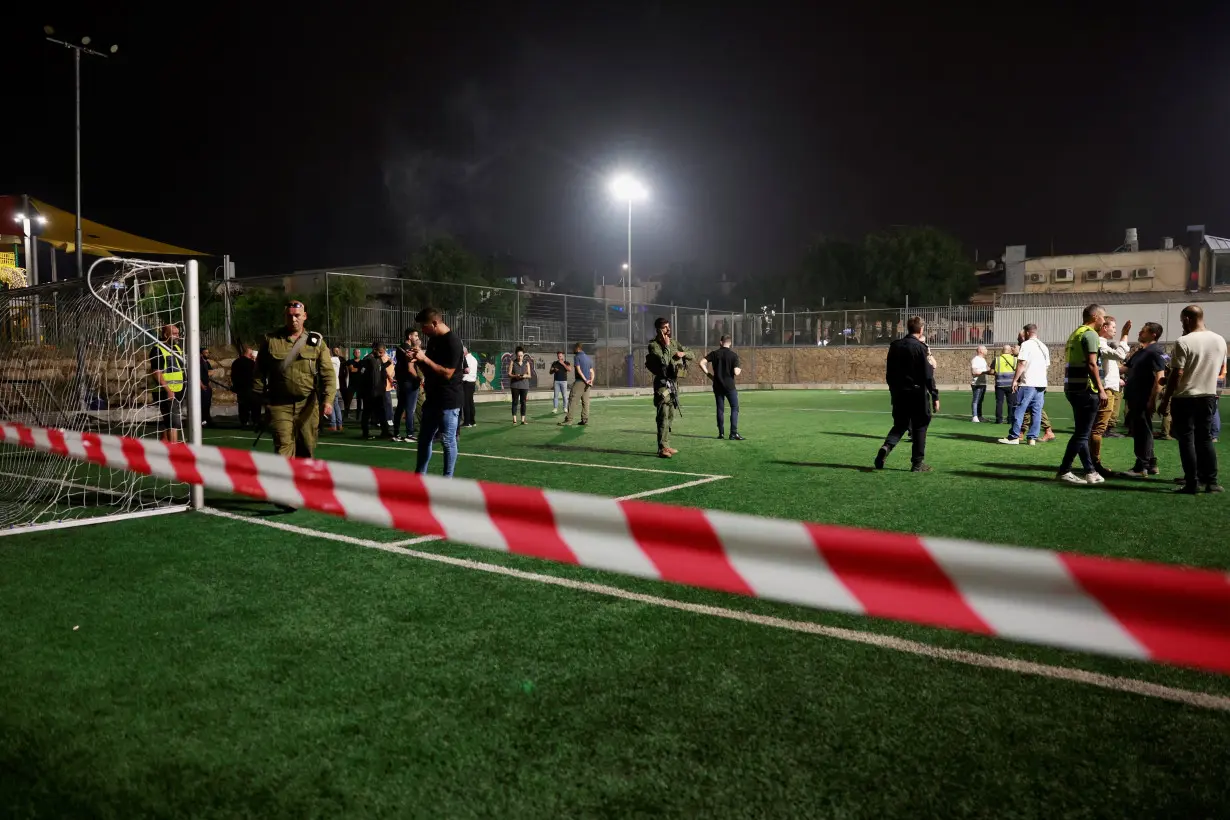
The rocket struck a football pitch in the Druze village of Majdal Shams in the Israeli-occupied Golan Heights, territory captured from Syria by Israel in the 1967 Middle East war and annexed in a move not recognised by most countries.
"Hezbollah will pay a heavy price, the kind it has thus far not paid," Prime Minister Benjamin Netanyahu said in a phone call with the leader of the Druze community in Israel, according to a statement from his office.
In a written statement, Hezbollah said: "The Islamic Resistance has absolutely nothing to do with the incident, and categorically denies all false allegations in this regard".
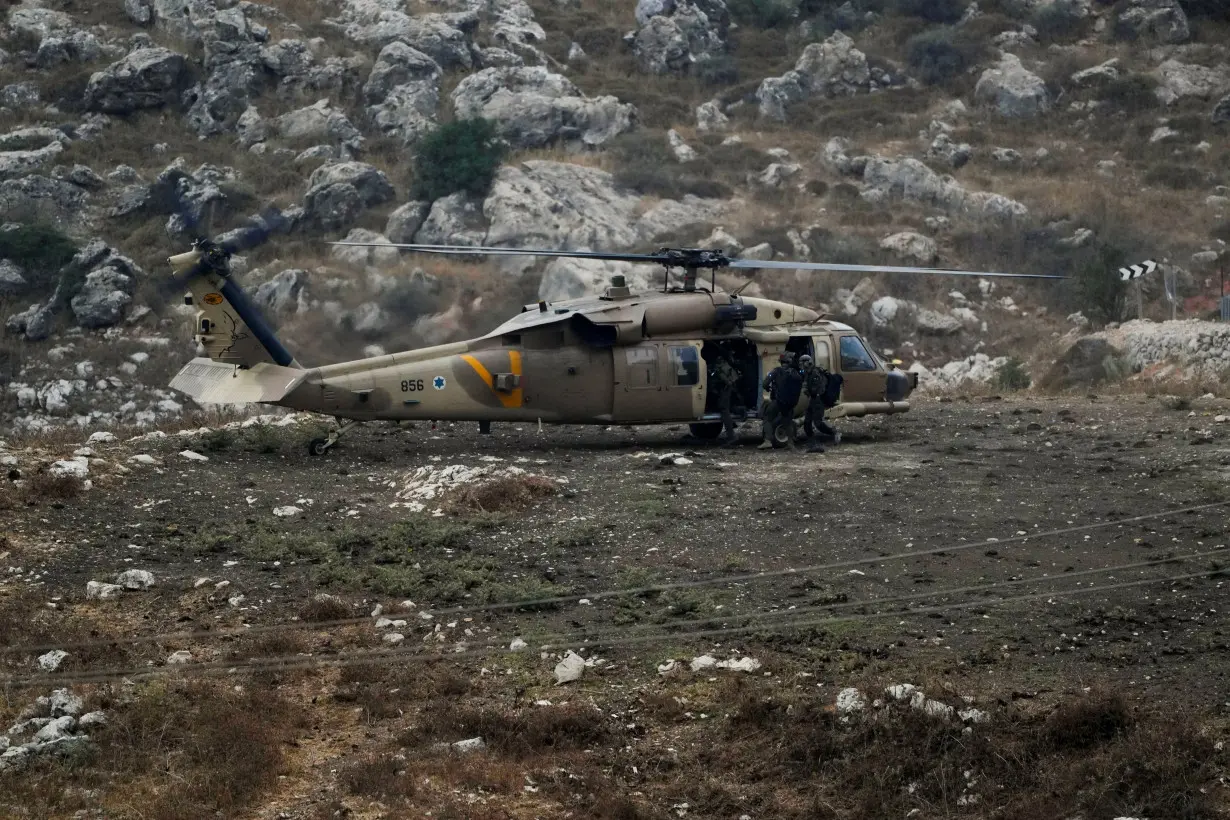
Hezbollah had earlier announced several rocket attacks targeting Israeli military positions.
The Israeli ambulance service said 13 more people were wounded by the rocket that hit the soccer pitch which was filled at the time with children and teenagers.
"They were playing soccer, they heard sirens they ran to shelter...it may take them like 15 seconds (to reach the shelter). But they couldn't reach the shelter because the rocket hit the site between the ground and the shelter," said Mourhaf Abu Saleh, a witness.
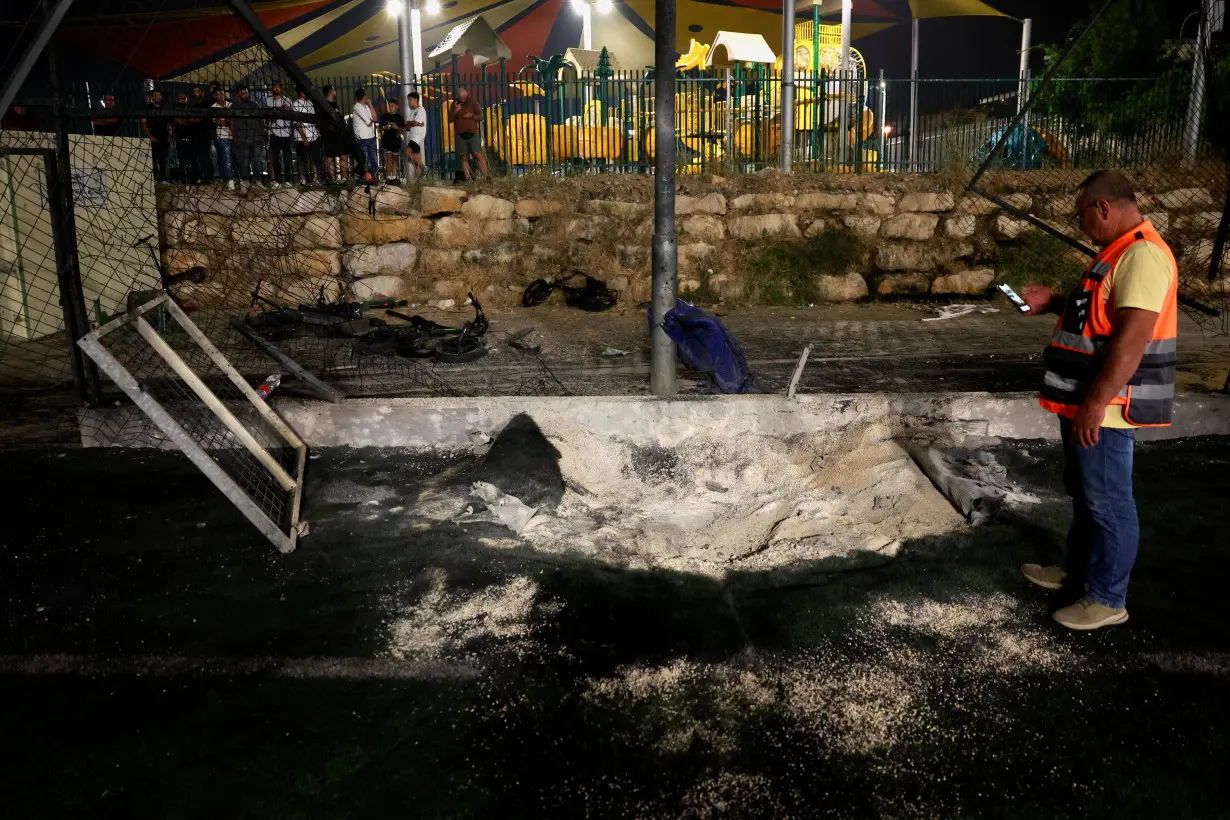
Footage posted on social media showed the moment the rocket hit. An air raid siren can be heard, followed by a big explosion and images of smoke rising. Reuters was able to independently verify the location with the buildings and road layout that matched the satellite imagery of the area.
Idan Avshalom, a medic with the Magen David Adom ambulance service, said first responders arrived to a scene of great destruction. "There were casualties on the grass and the scene was gruesome," he said.
Netanyahu, already due to head back from the United States to Israel overnight on Saturday, said he would bring his flight forward and convene his security cabinet upon arrival.
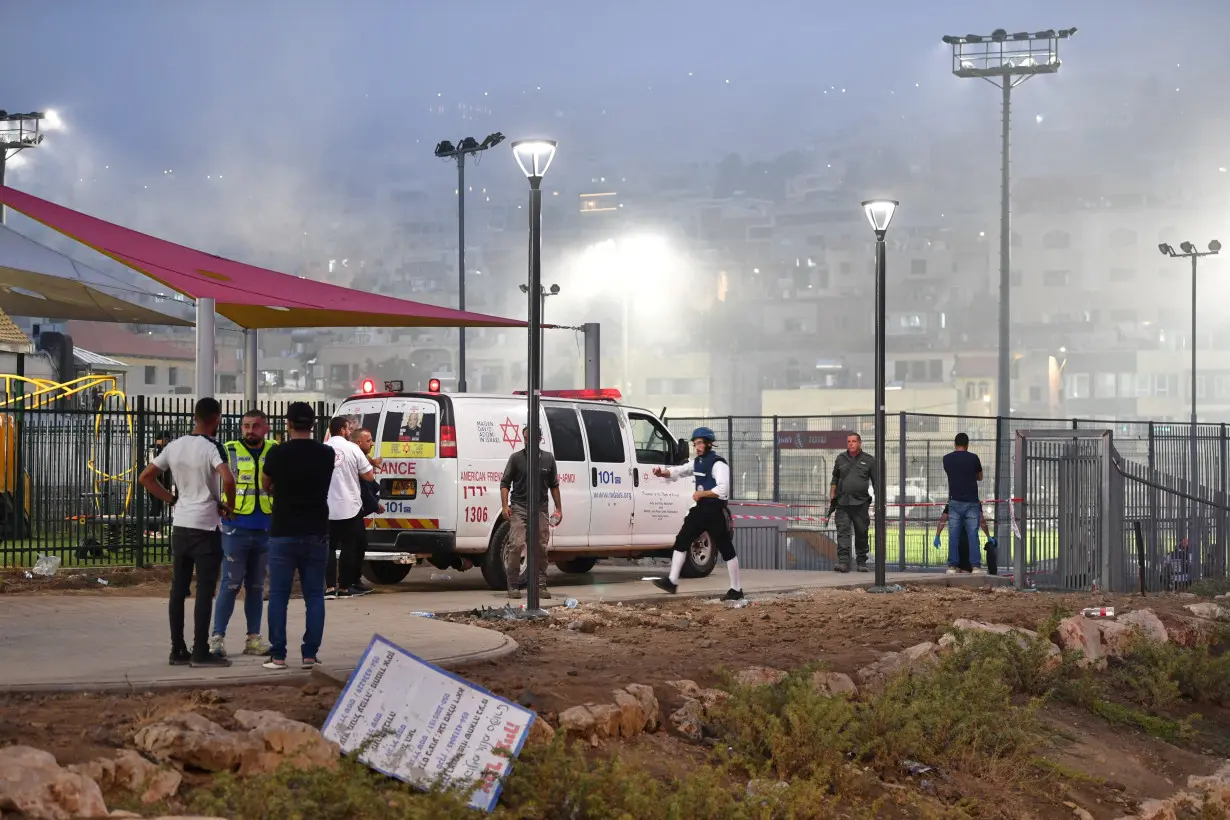
The United States, which has been leading diplomatic efforts aimed at de-escalating the conflict across the Lebanese-Israeli border, condemned it as a horrific attack and said U.S. support for Israel's security was "iron-clad and unwavering against all Iranian backed terrorist groups, including Lebanese Hezbollah".
The United States "will continue to support efforts to end these terrible attacks along the Blue Line, which must be a top priority," the spokesperson for the White House National Security Council said in a statement. The Blue Line refers to the frontier between Lebanon and Israel.
Moscow, which has ties with most of the key players in the Middle East, including Israel, Iran, the Palestinian Authority and Hamas, condemned the attacks in the Golan Heights.
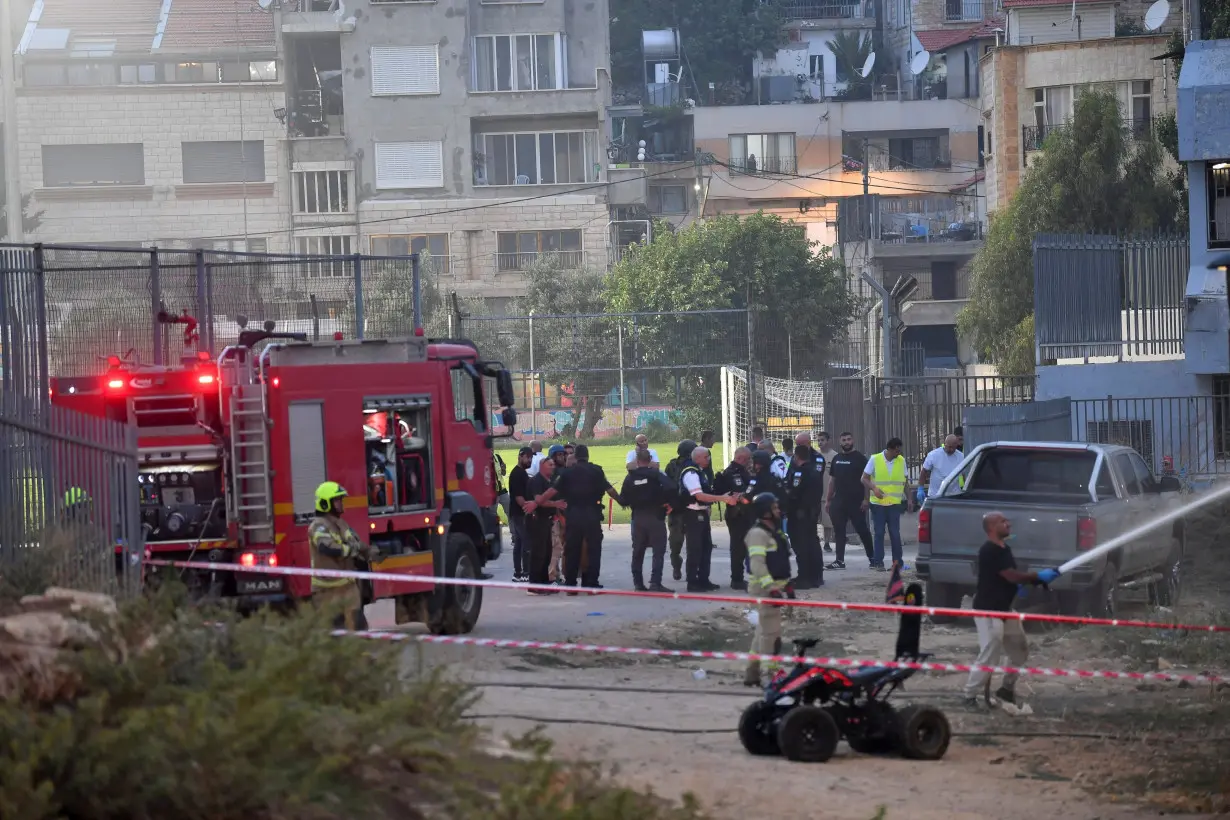
"We condemn all terrorist actions undertaken by any entity," Russian TASS state news agency cited Russian Foreign Minister Sergei Lavrov as saying on Sunday.
IRANIAN MISSILE
The Israeli military said the rocket launch was carried out from an area located north of the village of Chebaa in southern Lebanon.
Speaking with reporters at Majdal Shams, Israeli military spokesperson Rear Admiral Daniel Hagari said that forensics showed the rocket was an Iranian-made Falaq-1.
Hezbollah had earlier announced firing a Falaq-1 missile on Saturday, saying it had targeted an Israeli military headquarters.
In a televised statement, Hagari also said that for now there was no change in Home Front Command instructions, indicating the army was not expecting imminent escalation across Israel.
Netanyahu's far-right coalition ally, Finance Minister Bezalel Smotrich, called for tough retaliation, including against Hezbollah's leader, Sayyed Hassan Nasrallah.
"For the death of children, Nasrallah should pay with his head. All of Lebanon should pay," Smotrich posted on X.
The conflict has forced tens of thousands of people in both Lebanon and Israel to leave their homes. Israeli strikes have killed some 350 Hezbollah fighters in Lebanon and more than 100 civilians, including medics, children and journalists.
The Israeli military said after Saturday's attack the death toll among civilians killed in Hezbollah attacks had risen to 23 since October, along with at least 17 soldiers.
Andrea Tenenti, spokesperson for the UNIFIL peacekeeping force which operates in southern Lebanon, told Reuters its force commander was in contact with authorities in both Lebanon and Israel "to understand the details of the Majdal Shams incident and to maintain calm".
A senior diplomat focused on Lebanon said all efforts were now needed to avoid an all-out war.
ATTACKS FROM LEBANON
Hezbollah is the most powerful of a network of Iran-backed groups across the Middle East that have entered the fray in support of their Palestinian ally Hamas since October.
Iraqi groups and the Houthis of Yemen have both fired at Israel. Hamas has also carried out rocket attacks on Israel from Lebanon, as has the Lebanese Sunni group, the Jama'a Islamiya.
More than 40,000 people live on the Israeli-occupied Golan, more than half of them Druze residents. The Druze are an Arab minority who practice an offshoot of Islam.
The attack on the soccer pitch followed an Israeli strike in Lebanon that killed four militants on Saturday. Two security sources in Lebanon said the four fighters killed in the Israeli strike on Kfarkila in southern Lebanon were members of different armed groups, with at least one of them belonging to Hezbollah.
The Israeli military said its aircraft had targeted a military structure belonging to Hezbollah, after identifying a militant cell entering the building.
At least 30 rockets were then fired from Lebanon across the border, the military said.
Hezbollah claimed at least four attacks, including with Katyusha rockets, in retaliation for the Kfarkila attacks.
(Reporting by Maayan Lubell in Jerusalem, Maya Gebeilly and Laila Bassam in Beirut; Additional reporting by Timour Azhari in Baghdad; Monica Naime in Mexico City, and Roleen Tafakji in Jerusalem, and Andrea Shalal in Washington; Writing by Helen Popper; Editing by Frances Kerry, Andrew Heavens, Sandra Maler and Sonali Paul)

 UK inflation unexpectedly eases in December, which could reduce pressure in bond markets
UK inflation unexpectedly eases in December, which could reduce pressure in bond markets
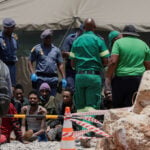 Body count from South African mine siege rises to 60
Body count from South African mine siege rises to 60
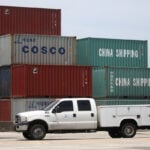 US importers rush in goods from China as Trump tariff threat looms
US importers rush in goods from China as Trump tariff threat looms
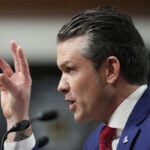 Question on ASEAN stumped Hegseth at Senate hearing. What is it and why is it important?
Question on ASEAN stumped Hegseth at Senate hearing. What is it and why is it important?
 Novak Djokovic breaks a tie with Roger Federer for the most Grand Slam matches in tennis history
Novak Djokovic breaks a tie with Roger Federer for the most Grand Slam matches in tennis history
 China's RedNote: what you need to know about the app TikTok users are flocking to
China's RedNote: what you need to know about the app TikTok users are flocking to
 British author Neil Gaiman denies ever engaging in non-consensual sex as more accusers come forward
British author Neil Gaiman denies ever engaging in non-consensual sex as more accusers come forward
